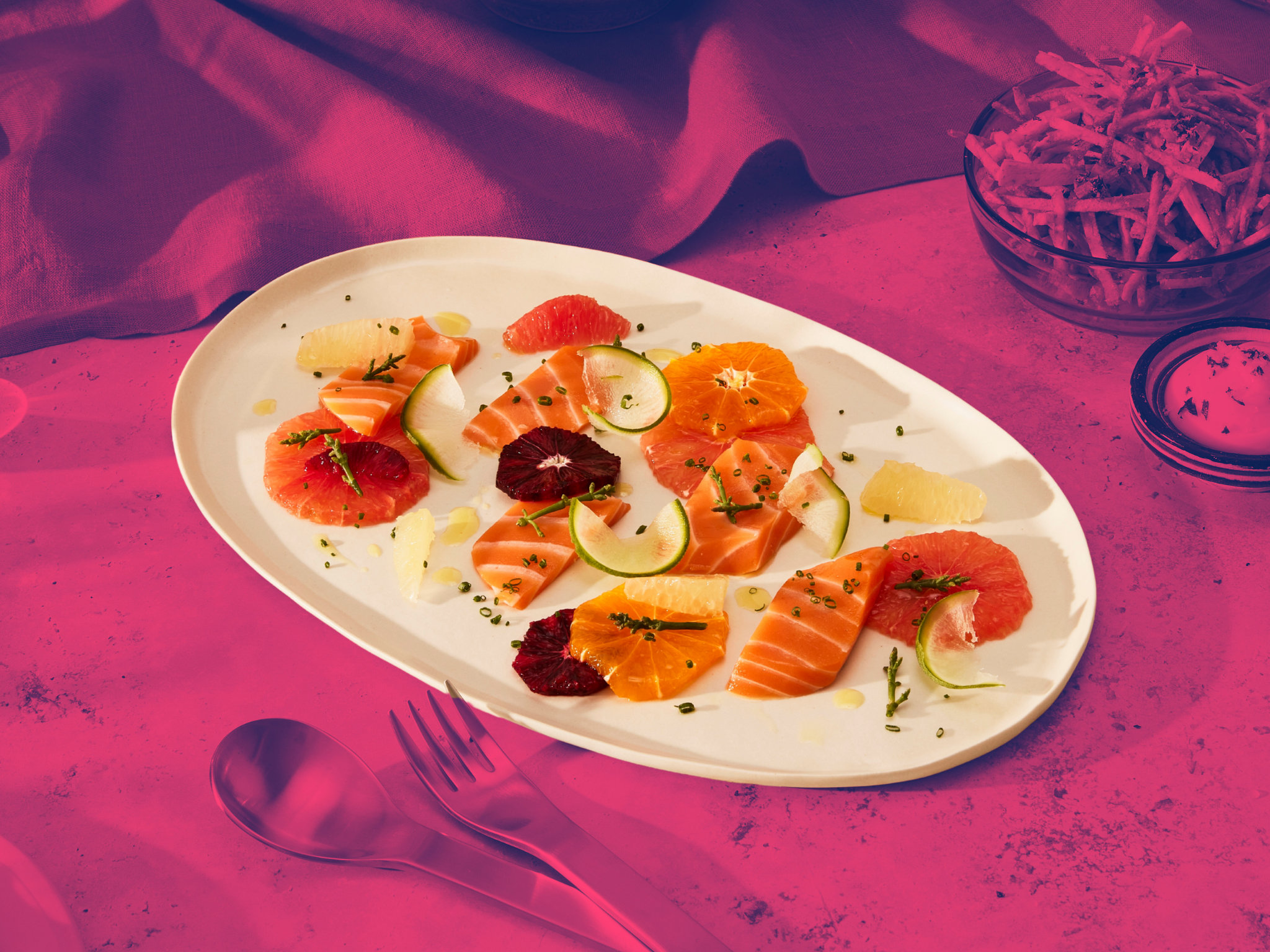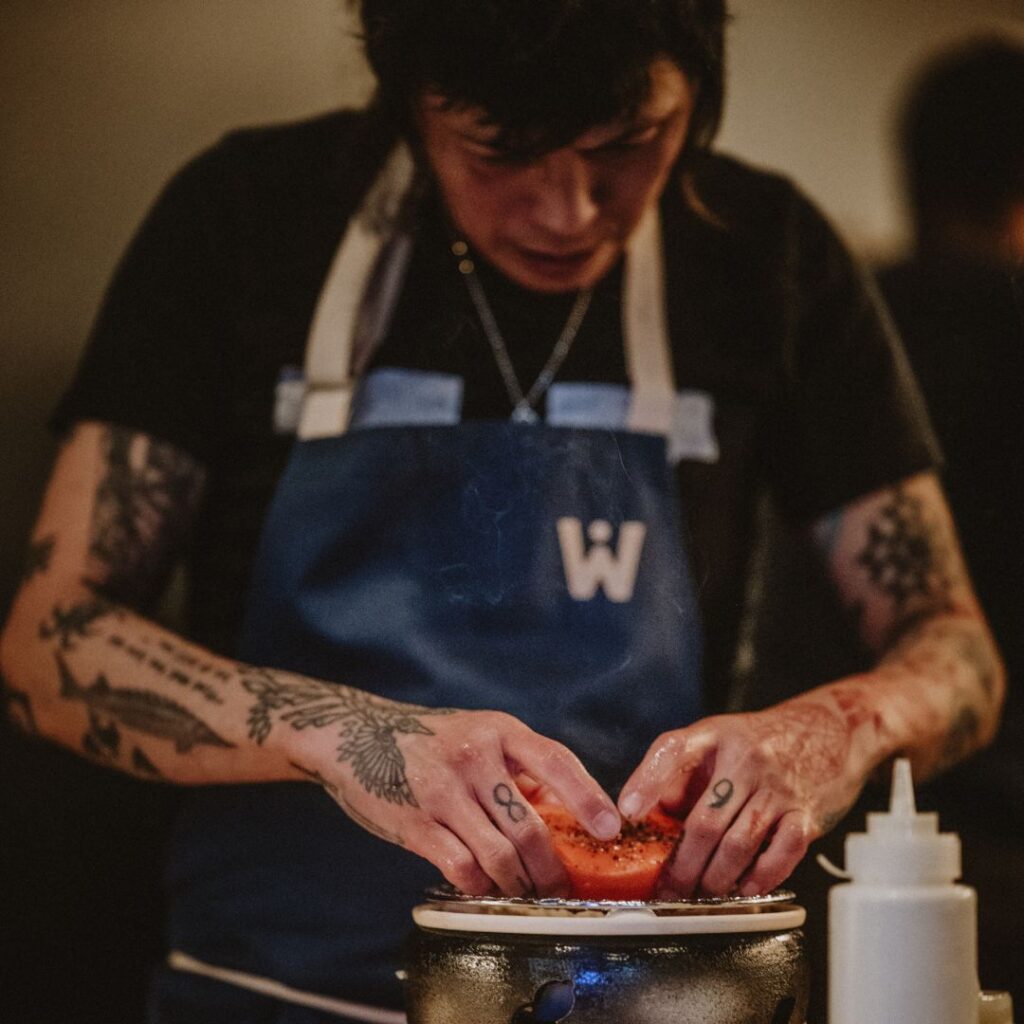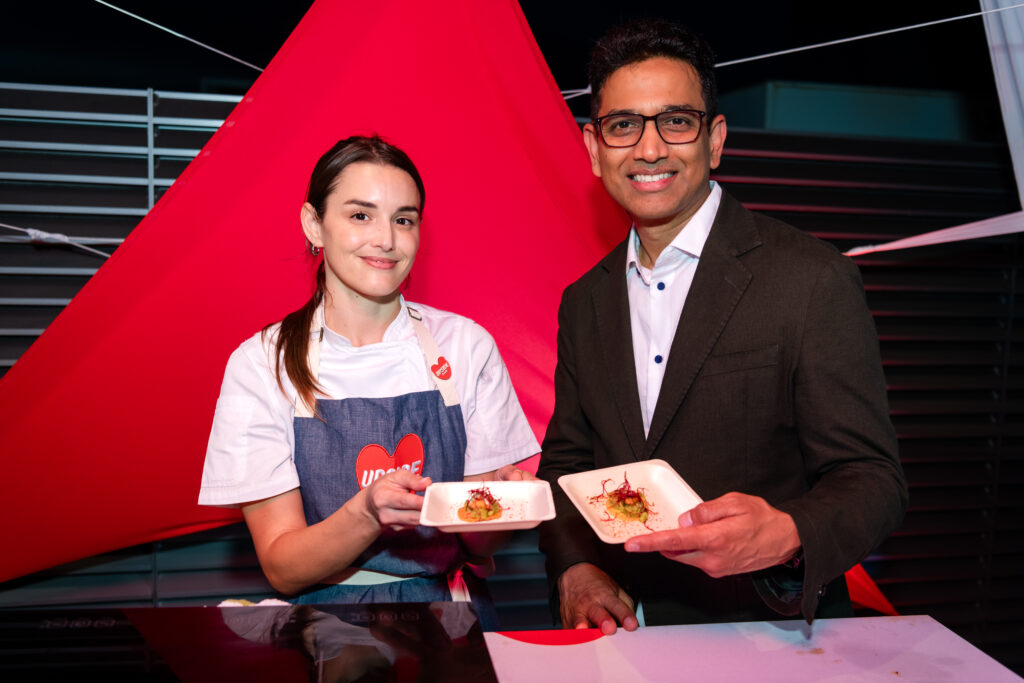
A day after Texas’s ban on cultivated meat came into force, two food tech startups sued the state for its decision. Their legal team explains why.
When Texas Governor Greg Abbott signed a law to ban cultivated meat in the state, companies had just over two months before it went into effect.
In that period, Wildtype, a US startup approved by the Food and Drug Administration (FDA) to sell cultivated salmon nationwide, debuted its product at Otoko, an omakase restaurant in Austin known for its blend of Tokyo-style sushi and Kyoto-style kaiseki.
“Farm-raised salmon creates so much pollution, so it’s not sustainable. You want to enjoy seafood long-term, so Wildtype’s good because you don’t have to kill the fish anymore,” chef-owner Yoshi Okai said. “It’s something new. It’s awesome.”
The eatery was one of Wildtype’s first launch partners, alongside outposts in Oregon, California, Washington, and Colorado. “We had selected Otoko and chef Yoshi Okai for a number of reasons, many months before this ban was floated in Texas,” co-founder and CEO Justin Kolbeck tells Green Queen.
“Following our launch in July, we had planned to build on our momentum in Austin by making Wildtype available to a number of seafood restaurants across Texas, including in Dallas and Houston, but this bill closed those markets to us,” he says.
Before Texas’s ban was even discussed by policymakers, Upside Foods – a cultivated meat startup approved to sell both by the FDA and the US Department of Agriculture – sold limited amounts of its first chicken product at a “well-attended private event” during the 2024 South by Southwest conference in Austin.
“The company is preparing for a larger-scale commercial launch of its new chicken products in the coming months,” says Upside Foods general counsel Myra Pasek. “Texas businesses – both restaurants and grocery stores – have expressed serious interest in selling Upside chicken in Texas. With the ban in effect, these sales would be prohibited.”
These missed opportunities have driven Wildtype and Upside Foods to join forces with the Institute for Justice to file a lawsuit in the US District Court for the Western District of Texas, alleging that the state’s SB 261 is “unconstitutional”.

What clauses is Texas allegedly violating?
In the legal complaint, the Institute for Justice noted that the law wasn’t passed to protect the health and safety of consumers, since it allows the distribution of cultivated meat as long as it isn’t sold.
“Instead, SB 261 was enacted to stifle the growth of the cultivated meat industry to protect Texas’s conventional agricultural industry from innovative competition that is exclusively based outside of Texas,” it said.
It argues that Texas’s ban violates the Commerce and Supremacy Clauses of the US Constitution. Under the former’s dormant clause, the federal government has exclusive power to regulate interstate commerce, with states having limited power to interfere. It’s designed to prohibit economic protectionism that benefits in-state interests.
The Supremacy Clause, meanwhile, makes the Constitution and federal laws the highest law of the land. The decisions by two federal departments to allow Wildtype and Upside Foods to sell products in the interstate market supersede any contrary state laws.
“Texas’s law is unconstitutional because it was enacted for the purpose, and has the effect, of protecting in-state economic interests from out-of-state competition. That sort of discrimination violates the Commerce Clause,” explains Paul Sherman, senior attorney at the Institute for Justice.
“Second, as to Upside, Texas’s law is preempted by federal law. The Poultry Product Inspection Act prohibits states from imposing rules on the permissible ingredients in poultry products – or the manner in which they’re produced – that differ from or exceed federal standards,” he notes.
“The USDA has given Upside the green light to manufacture chicken products from cultivated cells. Texas has said Upside can’t sell products containing cultivated cells. That’s not allowed.”

Texas’s cultivated meat ban is ‘pure economic protectionism’
Texas is one of seven states to have banned cultivated meat. Florida was the first, and was at the end of a similar lawsuit brought by the Institute for Justice on behalf of Upside Foods last year. Alabama, Mississippi, Montana, Indiana, and Nebraska have also outlawed the sale of cultivated meat.
So why choose Texas for the lawsuit instead of the others? “Texas is the second most populous state in the country. It’s an important market,” says Sherman. “And it’s one in which both Wildtype and Upside have distributed their products. A victory there would send a strong signal to other states that this sort of economic protectionism will not stand.”
He confirms that the Institute for Justice is “monitoring legislative activity in all the states and will certainly consider filing other lawsuits if necessary”.
All the states that have banned cultivated meat are led by Republican governors, and surveys have shown that cultivated meat acceptance skews lower among Americans who vote red. But Wildtype’s Kolbeck doesn’t think such legislation is driven by partisan politics.
“This is pure economic protectionism,” he says. “There were countless points made during deliberations on this bill about protecting Texas ranchers. The complaint filed by the Institute for Justice provides examples. This law is all about keeping competition out of Texas. Wildtype was collateral damage.”
Indeed, Texas is the top meat producer in the US – last year, it churned out 4.5 billion lbs of beef. The industry is the third-largest economic generator in the state. And in the run-up to the bill’s signing, SB 261’s sponsor, Senator Charles Perry, said the introduction of cultivated meat “could disrupt traditional livestock markets, affecting rural communities and family farms”.
Likewise, Stan Gerdes, the bill’s lead sponsor in the House, said: “The goal of this bill is to protect our agriculture industry.”

What happens next?
The Institute for Justice isn’t stopping here. “We will be filing a motion for preliminary injunction asking the court to allow Wildtype and UPSIDE to continue selling their products in Texas while the case moves forward,” says Sherman “Our hope is that we can have a ruling on that before the end of the year.”
It attempted a similar move in Florida, though a judge rejected the preliminary injunction, cancelling Upside Foods’s scheduled appearances at Art Basel and the South Beach Wine and Food Festival, and postponing its planned product launch at a restaurant in the state in early 2025.
“Although the Florida court rejected our preemption claim, its reasoning was based on a misunderstanding of how the federal law works. Briefly, the court believed that state and federal requirements had to conflict, but the federal law prohibits even non-conflicting state requirements,” says Sherman.
“Meanwhile, the [Texas] government is likely to file a motion to dismiss the case. We defeated a motion to dismiss in our Florida challenge, and we’re confident we can defeat one here,” he adds. “We have strong arguments. The district court in our Florida lawsuit has already held that the government will have a heavy burden to justify the law on our Commerce Clause claim.”

Apart from harming cultivated meat producers’ financial dealings, Kolbeck suggests that the ban has a wider effect on public perception. “In addition to shutting down one of the very first places cultivated seafood was available for sale, proponents of the bill made misrepresentations about cultivated foods during deliberations, all of which harmed the reputation of our emerging industry,” he says.
The case has been assigned to Judge Alan Albright, who Sherman says is known for moving cases quickly: “Our hope is we’ll have a ruling from the trial court on the merits no later than summer next year.”
Asked for an update on the Florida case, Sherman adds: “We’ll be having an argument in the 11th Circuit on November 3 about whether the trial court erred when it denied Upside’s motion for a preliminary injunction. Besides that, we’re moving forward with discovery in the trial court.”
The post Why Upside Foods & Wildtype Are Suing Texas for Its Cultivated Meat Ban appeared first on Green Queen.
This post was originally published on Green Queen.